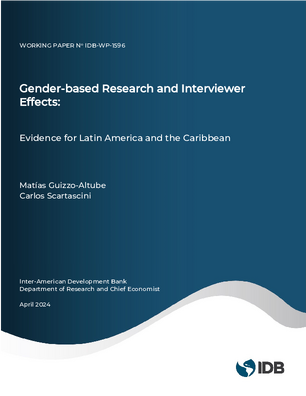Gender-Based Research and Interviewer Effects: Evidence for Latin America and the Caribbean
Date
Apr 2024
As the measurement of public opinion and attitudes toward gender issues has gained increasing attention in gender policy and research, the accurate design, implementation, and analysis of survey data has become paramount. In this paper, we examine the impact of the gender of the interviewer on survey responses in Latin America and the Caribbean, both individually and in the aggregate, using data from the LAPOP surveys (2012-2018). We also present a formal model that illustrates how the gender of the interviewer may influence responses and derive an optimal adjustment in survey design and analysis to account for this bias. Our findings highlight the substantial influence of social norms on gender opinions, revealing that respondents are more likely to overestimate men's abilities in politics relative to women's and to accept domestic violence when interviewed by men rather than women. Two key actions emerge as a corollary: survey firms should always provide the gender of the interviewer in their data, and researchers should adjust for this bias in their analysis. Without implementing these recommended practices, survey data may not accurately reflect what individuals in the region think about gender issues, potentially skewing behaviors and public policy.
Generative AI enabled





